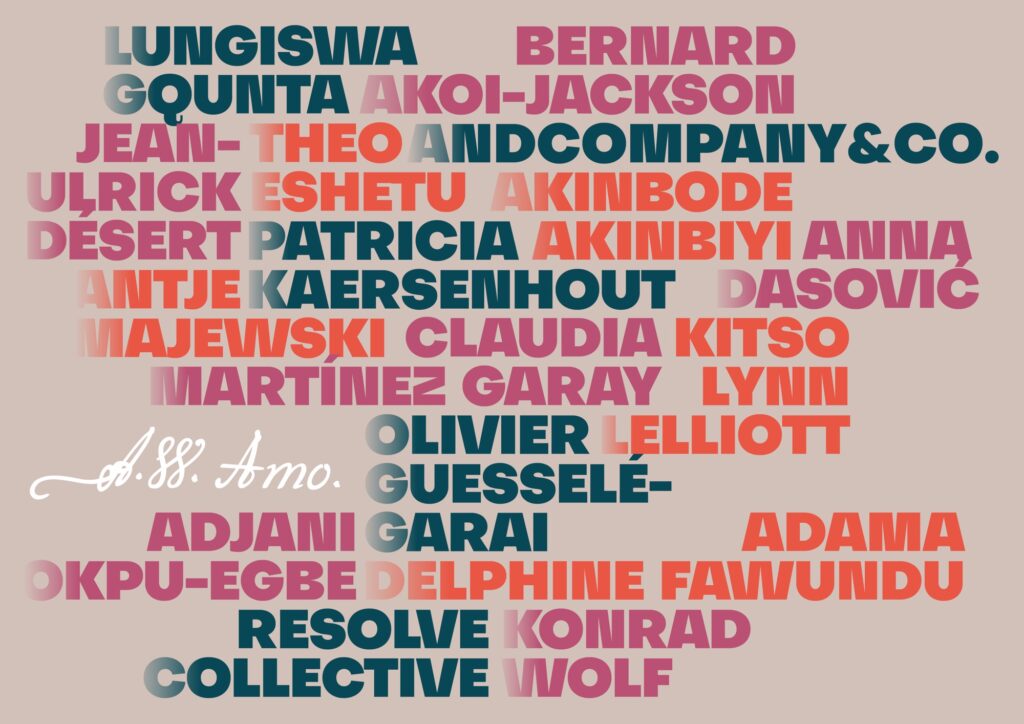Kunstverein Braunschweig , online / Braunschweig , Germany
28 Mar 2020 - 02 Aug 2020

THE FACULTY OF SENSING – Thinking With, Through and by Anton Wilhelm Amo. Courtesy Kunstverein Braunschweig.
With THE FACULTY OF SENSING – Thinking With, Through and by Anton Wilhelm Amo, Kunstverein Braunschweig has worked in close cooperation with Bonaventure Soh Bejeng Ndikung to develop a project in honor of Anton Wilhelm Amo, an outstanding philosopher of the 18th century. On the basis of Amo’s writings and their reception, highly topical issues of referentiality, erasure, and canonization will be discussed.
In a 2013 essay The Enlightenment’s ‘Race’ Problem, and Ours for the New York Times’ philosophy page The Stone, Justin E. H. Smith wonders how and why philosophers like Immanuel Kant or David Hume could afford to be so explicitly racist, at a period when a contemporary of theirs Anton Wilhelm Amo was excelling as a philosopher. The explanation for this can be found in processes of erasure in relation to what Michel-Rolph Trouillot has called « Silencing the Past. »
THE FACULTY OF SENSING – Thinking With, Through and By Anton Wilhelm Amo charts a trajectory primarily on and around his philosophical and legal proposals in relation to 1. the thing itself, 2. the living body and mind discourse, 3. the legal rights of people of African origin in the 18th century as well as today, 4. transcendental homelessness (Georg Lukácz), 5. the politics of naming, as well as 6. a more complex narration of the history of the Enlightenment project. All these issues were tackled in Amo’s writings like his 1729 thesis disputation on the rights of Black people in Europe, his 1734 dissertation On the Apathy of the Human Mind at the University of Wittenberg and his 1738 treatise On the Art of Philosophizing Soberly and Accurately.
Obviously, the biography of Anton Wilhelm Amo—born around 1700 in what is today Ghana, taken as a child slave to Holland then to Braunschweig, Halle and Wittenberg, and upon increased racism fled ca. 1748 to West Africa, where he died after 1753—cannot be separated from his work.
As part of the extensive research and exhibition project, 16 international artists and groups were invited to respond to the philosophical thought of Anton Wilhelm Amo in largely newly produced works.
While the physical exhibition spaces remains closed until further notice, Kunstverein Braunschweig presents installation views, video works, research material, artist interviews and texts on their website www.kunstvereinbraunschweig.de and on social media channels.
The exhibition is accompanied by an extensive public program of performances, artist talks, workshops, and discussions. Our team is working on creating online versions of some of these events, until it is safe for our space to open to the public. A symposium with international scholars and artists is scheduled to take place on June 19 and 20. The symposium will kick off on June 19, the day of the annual summer party in the garden of the Kunstverein.
A publication will be produced alongside the exhibition THE FACULTY OF SENSING – Thinking With, Through, and by Anton Wilhelm Amo, linking theoretical and artistic contributions to the exhibition and the symposium.
Artists: Akinbode Akinbiyi, Bernard Akoi-Jackson, andcompany&Co., Anna Dasović, Jean-Ulrick Désert, Theo Eshetu, Adama Delphine Fawundu, Lungiswa Gqunta, Olivier Guesselé-Garai, Patricia Kaersenhout, Kitso Lynn Lelliott, Antje Majewski, Claudia Martínez Garay, Adjani Okpu-Egbe, RESOLVE Collective, Konrad Wolf
Curators: Bonaventure Soh Bejeng Ndikung, Jule Hillgärtner, Nele Kaczmarek
Assistant Curators: Franz Hempel, Raoul Klooker
.